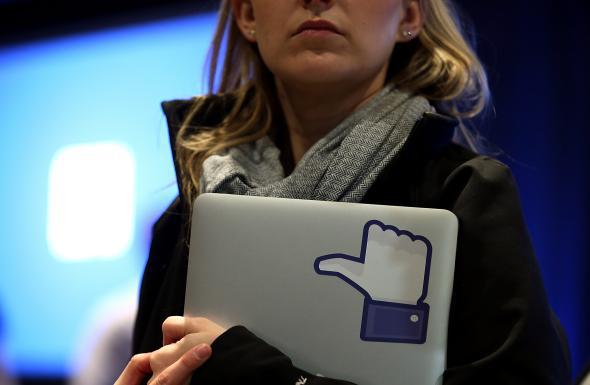Facebook’s facial recognition algorithms have long been a source of widespread contention. It’s a system that we’ve voluntarily trained, feeding the company massive amounts of data about who we are and what we look like. As April Glaser has written in Slate, Facebook has actively worked to suppress laws that would limit its ability to collect and use this data. And though the company has faced at least one lawsuit, its technology has only grown more advanced.
While that process is unlikely to stop any time soon, Facebook is clearly aware that many users are concerned, and it’s still working to sell us on the project. To that end, it announced in a Tuesday blog post that it will be giving users new “optional tools” to help them “manage their identit[ies]” on its platform. Some of the details it lays out in that post may please privacy advocates, but the way it presents them should still raise eyebrows.
As many technology journalists suggested, the most compelling element of the announcement may be that the company will now help you find pictures of yourself, whether or not you’re tagged in them. Drawing on its existing “template” of what you look like, the company will tell you if it sees you in a picture that someone else has uploaded, assuming you have access to the photo, meaning that it’s publicly available or you are connected on the site. In its blog post, the company frames this new feature as a victory for user autonomy: “You’re in control of your image on Facebook and can make choices such as whether to tag yourself, leave yourself untagged, or reach out to the person who posted the photo if you have concerns about it.”
While this arguably does give users a modicum of control, it only goes so far. In the past, if someone manually tagged an unflattering picture of you, you already had the option to untag yourself. Now, you may know that it’s out there, but that information doesn’t give you much additional power over it. If you’re willing to look vulnerable, you might be able to nicely ask the person who uploaded it to take it down, but unless the image violates Facebook policy, you’re largely without other avenues of recourse.
In its post, Facebook also outlines two more practical features. First, it claims that facial recognition will benefit the visually impaired, such that “people who use screen readers will know who appears in photos in their News Feed even if people aren’t tagged.” As the company demonstrates in a cheery video, that means the site will automatically tell users both who appears in a photo and what they’re doing, or at least where they are. Second, it claims that picture review will extend to the profile photos of strangers. The company proposes that this will help fight digital impersonation, letting you know if someone else is pretending to be you.
These two features are both unobjectionable, maybe even admirable. Still, it’s still hard to escape the feeling that they aren’t really about improving Facebook as a whole so much as they demonstrate the bright side of its facial recognition technology. If anything, they’re designed to make it that much harder to object to the system in the first place by suggesting that it serves fundamentally benevolent pruposes.
Facebook knows, of course, that not everyone is buying what it’s selling, which may be why its announcement also makes a show of letting users know that they’ll be able opt out of facial recognition altogether: “Soon, you will begin to see a simple on/off switch instead of settings for individual features that use face recognition technology.” Facebook representative Rochelle Nadhiri told me over email that the company’s algorithms will stop looking for you in images if you select “off.” “Once a person turns off face recognition we delete their template completely. Without the template, we cannot recognize you in photos,” she wrote.
While that’s likely good news for those with privacy concerns, it’s still set up in a way that will leave many in a double bind. It’s a dilemma that’s baked into the Tuesday announcement itself: If we follow Facebook’s own rhetoric, those who opt out of facial recognition are also opting out of the identity management tools that come with it. Even as it’s giving us an alternative, it’s showing us the downside of embracing it. Facebook is, in effect, telling its users that if they want to pass on facial recognition, it will be that much harder to stop others from impersonating them, or even uploading ugly snapshots. Thus, if you want to protect yourself on the platform—whatever that means to you—you have to open yourself up to its own surveillance tools.
Ultimately, it’s hard to imagine Facebook ever introducing a truly satisfying option in its privacy and security settings. It’s possible, then, that the only way to reclaim your identity from Facebook may be the one we’ve had all along: deleting our accounts and opting out of the platform altogether.
